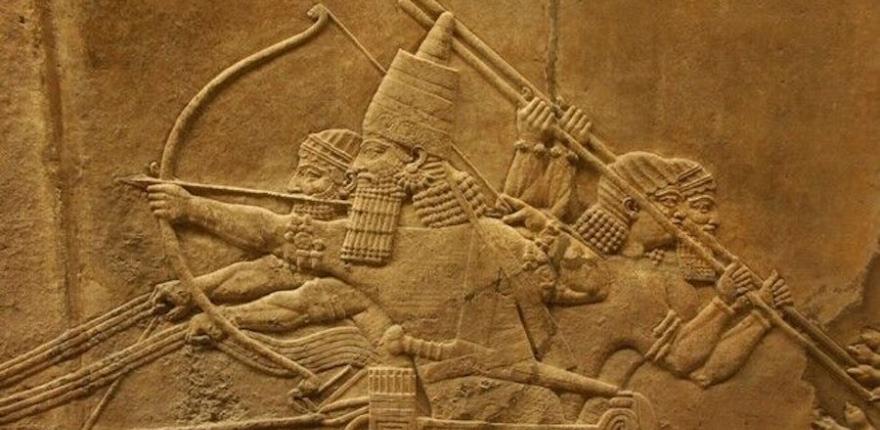Course length
10 months, full-time
Assessment
3 x modules
Graduate Research Skills
Dissertation of up to 15,000 words
Department of Archaeology

The Mesopotamian Archaeology track of the MPhil in Archaeology will be running in 2025-26. Any questions, contact Dr Steve Renette sr2095@cam.ac.uk.
Please note that the MPhil in Assyriology is not running in 2025-26.
The MPhil in Assyriology is a one-of-its-kind programme in the UK, merging ancient history, languages, archaeology, and the culture of Mesopotamia. You will join a thriving community of Near Eastern scholars, including students on the MPhil in Mesopotamian Archaeology, PhD students, McDonald Institute post-doctoral scholars, and permanent members of teaching and research staff. The programme aims to be flexible, fitting in with students’ different academic interests and backgrounds.
On the course, you will be given a background in the major languages of ancient Mesopotamia – Akkadian and Sumerian – and will gain a detailed understanding of aspects of Mesopotamian archaeology and culture. These range from the later prehistoric periods (6000 BC) through to the earliest literate and urban societies of the Near East, to the Assyrian and Babylonian empires.
This course acts as an excellent stand-alone introduction to Mesopotamia, or as a conversion course for those planning to use Mesopotamian textual sources to undertake doctoral research. Students without previous knowledge of Mesopotamian languages or archaeology are welcomed, as well as those with some prior knowledge who wish to build on it.
Language study is essential to the course. To study ancient Mesopotamia without the language element, applicants should choose the MPhil in Archaeology and take the Mesopotamian Archaeology option.
The MPhil is a full-time, 10-month course combining three taught modules and an independent research dissertation of up to 15,000 words.
The course structure comprises:
1. One module chosen from:
G30 Introductory Akkadian language and texts - running in 2023-24
G33 Intermediate Akkadian language and texts - running in 2023-24
2. A second module chosen from:
G31 Mesopotamian culture II: Literature - running in 2023-24
G34 Advanced Akkadian language and texts - running in 2023-24
Modules offered in alternate years include:
G07 Mesopotamian Archaeology I: Prehistory and Early States - next running in 2024-25
G31 Mesopotamian culture I: Society, Economy and Politics - next running in 2024-25
G35 Sumerian - next running in 2024-25
3. A third module chosen from the list in (2.) above, or a module from any other taught MPhil course offered in the Department of Archaeology, subject to the consent of the instructor and the Assyriology MPhil co-ordinator
4. G01 Graduate Research Skills
5. An independent research dissertation of not more than 15,000 words
The modules may be assessed by written exams, essays (usually 3000-4000 words) or a combination of both. Many of the courses also include non-assessed presentations.
G22 Akkadian language and texts. This is suited to students with little to no previous knowledge of Akkadian. Students learn the essential grammar and vocabulary of the language, in both its classic Old Babylonian form (used in the law code of Hammurapi) and in the later literary language, ‘Standard Babylonian’ (as used in the Epic of Gilgamesh). Grammar is covered in the initial six weeks, after which teaching focuses on text-reading classes.
G23 Advanced Akkadian language and texts. This module is for students already familiar with Akkadian, and takes the form of text-reading classes. Students may make suggestions in the choice of set texts. In the past, these have spanned different genres such as letters, legal documents, divination and magical texts, and texts in Assyrian. Candidates take a language exam for this module, and produce a hand-copy (scale drawing) of a specified cuneiform table, and a philological note.
G21 Sumerian language and texts. This module is usually reserved for students with a good base knowledge of Akkadian. The module introduces Sumerian grammar and vocabulary through reading selected texts of the late 3rd and early 2nd millennia BC.
G24 and G25 Mesopotamian culture. Students will be introduced to Mesopotamian literature, scholarship and thought on this module. As they will just be getting started with the languages on the course, texts will be translated, and the focus will be on their literary history, purpose, and social context.
G26 Mesopotamian Literature. This module concentrates on texts traditionally recognised as ‘literary’, including myths and epics, lamentations and wisdom literature. Major Akkadian compositions such as the Epic of Gilgamesh are included, as well as the so-called Epic of Creation, and a variety of Sumerian compositions.
G27 Mesopotamian Religion and Scholarship. This module covers Mesopotamian thought in the broadest sense, including astronomy and astrology, divination, medicine, and magic.
G24 and G25 Mesopotamian archaeology. These modules provide a diachronic survey of Mesopotamian archaeology, with emphasis on themes and problems.
G24 Archaeology of Mesopotamia I: Prehistory through early states. In this module, the focus is on the late Neolithic period through to the end of the 3rd millennium BC. Issues of urbanism and early states, development of religious institutions and economic bureaucracies, trade and the creation of value, funerary rituals, and the effect of climate change on settlement patterns are addressed.
G25 Archaeology of Mesopotamia II: Territorial states through empires. Students follow developments of the 2nd and 1st millennia BC, including growth of empires, elaboration of technology, diplomatic exchange and hybridization in art styles.
G28 Topics in Mesopotamian history and archaeology. This module is designed to give students who already have familiarity with Mesopotamian archaeology the opportunity for more in-depth study in current debates. The course is taught through seminars and directed reading, on subjects selected according to your knowledge and interests.
The topic for the 15,000-word dissertation will be on an area of Assyriology, decided in consultation with teaching staff. This will match your interests, abilities, and previous experience.
Applicants usually have an undergraduate degree in archaeology, anthropology, classics, or ancient history, but other options are possible and specific knowledge of the ancient Near East is not a prerequisite.
Dr Jonathan Tenney is the co-ordinator for this MPhil option. Please get in touch for more information.